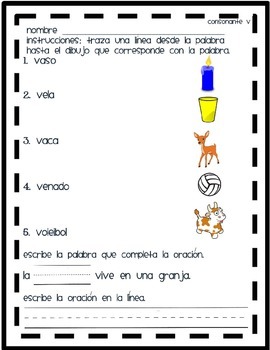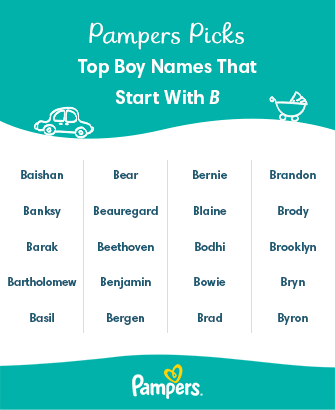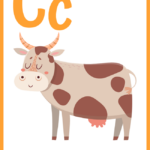Spanish Nouns That Start With V
1. Vaca (cow)
2. Vaso (glass)
3. Vendedor (salesperson)
4. Velero (sailboat)
5. Ventilador (fan)
6. Vestido (dress)
7. Viaje (trip)
8. Vidrio (glass material)
9. Vino (wine)
10. Vuelo (flight)
11. Vela (candle)
12. Vestuario (wardrobe)
13. Violín (violin)
14. Volante (steering wheel)
15. Vivienda (housing)
16. Valla (fence)
17. Varilla (rod)
18. Vagón (wagon)
19. Vehículo (vehicle)
20. Vegetal (plant)
21. Verruga (wart)
22. Visita (visit)
23. Villano (villain)
24. Virgen (virgin)
25. Viñedo (vineyard)
26. Viaducto (viaduct)
27. Vecino (neighbor)
28. Vientre (belly)
29. Vasija (vessel)
30. Visor (viewer)
More About Spanish Nouns That Start With V
Spanish, a widely spoken Romance language, is known for its rich vocabulary and nuanced grammar. One fascinating aspect of this language is its vast array of nouns, each contributing to its unique charm. Among these nouns, those beginning with the letter “V” not only add to the linguistic diversity but also offer insights into the cultural heritage and everyday life of Spanish-speaking communities.
In Spanish, nouns function as the building blocks of communication, allowing us to name people, places, things, and ideas. They carry gender and number, adhering to specific grammar rules that determine their form in a sentence. As we delve into the world of Spanish nouns starting with “V,” we uncover a plethora of words that encompass a wide range of themes, from nature and animals to professions and emotions.
One area in which Spanish nouns that start with “V” shine is the natural world. Vibrant and diverse, the flora and fauna of Spanish-speaking regions are beautifully encapsulated in words like “vegetación” (vegetation), “viñedo” (vineyard), and “volcán” (volcano). These nouns not only describe the physical aspects of the environment but also evoke the lush landscapes and geographical features that define these regions.
In addition to nature-related nouns, Spanish words starting with “V” encompass a broad spectrum of categories, including professions, hobbies, and leisure activities. For instance, “veterinario” (veterinarian) and “vendedor” (salesperson) highlight the importance of animal care and commerce, respectively. Meanwhile, “viajar” (to travel) and “ver películas” (to watch movies) demonstrate the leisure pursuits enjoyed by Spanish-speaking communities worldwide.
Moreover, nouns beginning with “V” in Spanish encapsulate the essence of human emotion and personal experiences. Words like “vida” (life), “valor” (valor), and “victoria” (victory) delve into the depths of human existence, exploring the strengths, victories, and triumphs that shape our journey. These nouns not only reflect the language’s ability to convey complex emotions but also offer insight into the cultural values and aspirations of Spanish-speaking communities.
Furthermore, Spanish nouns starting with “V” shed light on the rich cultural heritage and traditions of Spanish-speaking regions. Words like “virgen” (virgin) and “velada” (evening gathering) denote the strong influence of Catholicism and the significance of religious celebrations in the lives of many Spanish-speaking individuals. Meanwhile, nouns such as “vestido” (dress) and “vino” (wine) highlight the fashion and culinary traditions that are integral to these cultures.
As language learners and enthusiasts, exploring the depths of Spanish nouns that start with “V” allows us to appreciate the intricacies of this Romance language. By delving into the natural world, professions, emotions, and cultural heritage represented by these nouns, we gain a deeper understanding of both the Spanish language and the rich tapestry of the communities that speak it. From the breathtaking landscapes described by “volcán” to the powerful emotions evoked by “victoria,” the “V” words in Spanish reveal the beauty and complexity of human language and its ability to capture the essence of our world.
Stay tuned as we embark on an enchanting journey into the world of Spanish nouns that start with “V,” exploring their meanings, usage, and the fascinating cultural contexts that surround them. Join us as we delve into the heart of this vibrant language and uncover the treasures hidden within these words beginning with the letter “V.” Get ready to expand your vocabulary, engage with diverse themes, and deepen your understanding of Spanish culture. ¡Vamos a comenzar! (Let’s get started!)
Spanish Nouns That Start With V FAQs:
1. ¿Cuál es un sustantivo en español que comienza con V?
Respuesta: Un sustantivo en español que comienza con V es “vaca”.
2. ¿Me puedes dar otro ejemplo de un sustantivo que empiece con V?
Respuesta: Sí, otro ejemplo de un sustantivo que empiece con V es “ventana”.
3. ¿Qué significa el sustantivo “volcán”?
Respuesta: “Volcán” es una formación geológica que expulsa lava, ceniza y gases al erupcionar.
4. ¿Cuál es la traducción de “vestido” en inglés?
Respuesta: La traducción de “vestido” al inglés es “dress”.
5. ¿Qué es un “vaso” en español?
Respuesta: Un “vaso” es un recipiente que se usa para beber líquidos.
6. ¿Puedes darme un ejemplo de un sustantivo que comience con “ve” seguido de una vocal?
Respuesta: Sí, un ejemplo es “vela”, que es un objeto utilizado para proporcionar luz.
7. ¿Cuáles son los sinónimos de “vuelo”?
Respuesta: Algunos sinónimos de “vuelo” son “trayecto aéreo”, “desplazamiento en el aire” o “viaje en avión”.
8. ¿Qué significa la palabra “vendedor”?
Respuesta: “Vendedor” se refiere a una persona que vende productos o servicios a los clientes.
9. ¿Cuál es un sustantivo que comienza con “vi” en español?
Respuesta: Un sustantivo que comienza con “vi” en español es “vidrio”, que es un material transparente utilizado en la fabricación de ventanas y objetos.
10. ¿Puedes darme un ejemplo de un sustantivo que comience con “va” en español?
Respuesta: Sí, un ejemplo de un sustantivo que comienza con “va” en español es “vaca”, que es un animal de granja que produce leche.
















